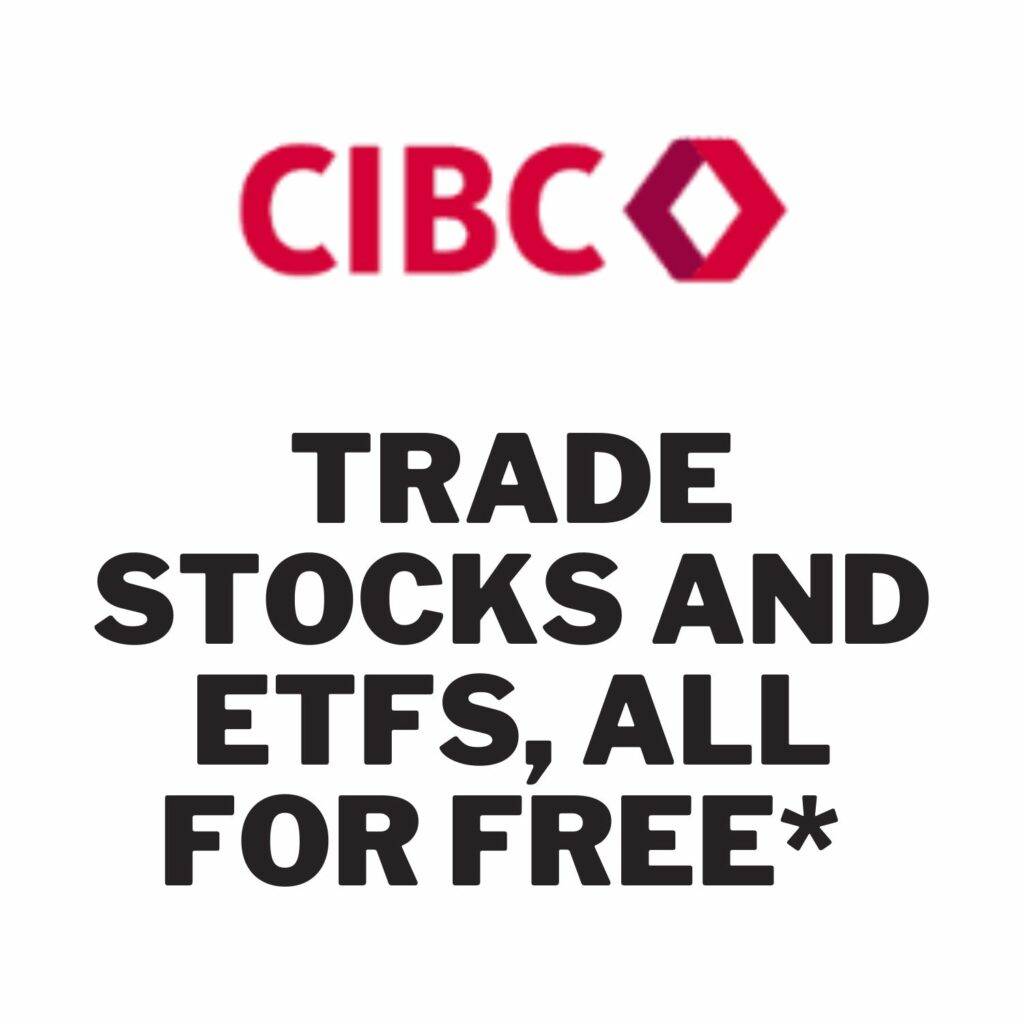Introduction
For Canadian investors eyeing the growth of the NASDAQ-100 Index similar to the American QQQ ETF, comprehending the intricacies of investing in a U.S.-traded ETF versus opting for a QQQ Canadian equivalent that tracks U.S. equities is essential. We’ll explore the Canadian alternatives to QQQ and discuss the implications for investors in Canada.

Understanding QQQ
The Invesco QQQ Trust (QQQ) is an ETF that tracks the performance of the NASDAQ-100 Index. This a basket of 100 of the largest non-financial companies listed on the NASDAQ stock exchange. Here’s why it stands out:
Low Expense Ratio:
One of the appealing aspects of QQQ is its relatively low expense ratio, making it a cost-effective way to gain exposure to most influential tech companies. The lower fees mean that more of the investment return is passed on to the investors.
Historical Performance:
Historically, QQQ has exhibited strong performance, primarily due to the robust growth of the technology sector. Its concentration in large-cap tech stocks like Apple, Microsoft, and Amazon has allowed it to benefit from the significant gains in this sector. Investors are often attracted to QQQ due to its track record of substantial returns, especially during periods market growth.
Tech-Focused, Growth-Oriented:
QQQ is the a preferred vehicle for investors looking to capitalize on the growth and innovation in the tech sector. As the tech industry has been a leading driver of market performance, QQQ’s focus aligns well with investors’ desire for growth and sector-specific exposure.
Diversification within Tech Dominance:
While technology giants dominate QQQ’s portfolio, it also includes companies from the consumer services, healthcare, and communication sectors, among others. This offers a diversified exposure within the context of a tech-heavy investment. And, it’s appealing to those looking for a balance between specialization and diversification.
QQQ Canadian Equivalent – Top 2
What is the Canadian Version of QQQ?
| SYMBOL | NAME | NET ASSETS |
|---|---|---|
| QQQ | Invesco QQQ Trust | 220.52B |
| ZNQ.TO | BMO NASDAQ 100 Equity Index ETF | 479M |
| ZQQ.TO | BMO Nasdaq 100 Equity Hedged to CAD Index ETF | 1.63B |
QQQ Canadian Equivalent Table
[stock_market_widget type=”table-quotes” template=”basic” assets=”QQQ,ZNQ.TO,ZQQ.TO” fields=”symbol,ytd_return,three_year_average_return,five_year_average_return” display_header=”true” display_chart=”false” search=”false” pagination=”false” scroll=”false” rows_per_page=”5″ sort_direction=”asc” alignment=”left” api=”yf”]
QQQ Canadian Equivalent – Historical performance
In the landscape of ETFs tracking the NASDAQ-100 Index, the performance of QQQ and its Canadian equivalents, particularly ZNQ and ZQQ, are noteworthy. Generally speaking, the performance of QQQ and ZNQ is closely aligned, indicating that ZNQ is effective in mirroring the NASDAQ-100’s performance while being accessible to Canadian investors through the Toronto Stock Exchange.
ZQQ, on the other hand, presents itself as a hedged ETF. This means it aims to minimize the impact of currency fluctuations between the Canadian dollar and the U.S. dollar on its returns. As a result, while it also tracks the NASDAQ-100, its performance may differ from that of QQQ and ZNQ due to this hedging strategy. This difference is not necessarily indicative of better or worse performance but reflects the impact of currency movements on the investment returns. For investors concerned about currency risk, ZQQ offers a way to gain exposure to the NASDAQ-100’s growth while potentially reducing the volatility that can come from fluctuating exchange rates.
In summary, QQQ provides a close performance mirror to the NASDAQ-100 for U.S. investors, while ZNQ offers a similar reflection for Canadians. ZQQ adds an extra layer of currency hedging, which can lead to performance differences, especially beneficial for those looking to mitigate currency risk. Each ETF serves different investor needs based on their investment strategy, risk tolerance, and currency preferences.
The Difference from a Canadian Investor Perspective
Investing in U.S. Traded ETFs (like QQQ)
Currency Exchange: When Canadian investors put money into U.S. traded ETFs such as QQQ, they must deal with currency exchange. Since these investments are denominated in U.S. dollars, Canadians need to convert their CAD to USD. Thus incurring currency exchange fees and exposing themselves to currency risk. The value of their investment may fluctuate not just with the market performance but also with the CAD/USD exchange rate, which can add an unpredictable element to returns.
Tax Considerations: Investing in U.S. ETFs introduces specific tax implications for Canadian investors. Dividends from U.S. securities are subject to withholding taxes, which can diminish the net income received.
Access and Trading: Accessing U.S. traded ETFs means using a brokerage platform that allows trading on U.S. exchanges. While many Canadian brokers offer this service, it might come with higher trading fees compared to domestic trades. Moreover, investors might find the process more cumbersome and the trading hours less convenient, considering the time zone differences between Canada and U.S. market hours.
QQQ Canadian Equivalent (like HXQ or ZNQ)
Best QQQ Equivalent ETFs: ZNQ and ZQQ
Currency Benefits: Opting for Canadian ETFs like ZNQ or ZQQ, which trade in Canadian dollars on the Toronto Stock Exchange, eliminates the need for Canadians to convert funds to USD, avoiding currency conversion fees and risks. This aspect makes investing in U.S. equities more straightforward and potentially more cost-efficient for Canadians.
Tax Advantages: ETFs such as ZNQ and ZQQ are designed with Canadian investors in mind, often employing strategies to reduce withholding taxes on dividends and negate U.S. estate tax implications. This structuring means Canadians may enjoy enhanced tax efficiency, making these ETFs a smarter choice compared to their U.S. counterparts for those concerned with optimizing after-tax returns.
Ease of Trading: Canadian investors benefit from the convenience of trading ZNQ and ZQQ on the TSX, accessible during Canadian market hours. This local listing means investing in a familiar regulatory environment, using Canadian dollars, and enjoying the ease of using local platforms. These factors collectively make ZNQ and ZQQ attractive for those seeking user-friendly access to U.S. markets.
Why These Differences Matter
When deciding between U.S. and Canadian ETFs, investors must consider currency risk and costs, tax implications, and accessibility. Direct investment in U.S. ETFs like QQQ exposes Canadians to currency fluctuations and conversion fees, whereas Canadian ETFs trading in CAD, like HXQ or ZNQ, offer a more straightforward approach with possible currency hedging. Tax-wise, U.S. ETFs may subject Canadians to withholding taxes on dividends, while Canadian ETFs are often structured for better tax efficiency. As for accessibility, U.S. ETFs require trading on U.S. exchanges, potentially incurring higher fees and complexity, while Canadian ETFs are easily traded on Canadian platforms. These differences significantly affect the overall convenience, cost, and return of investments, making it vital for investors to consider their personal situation and seek advice tailored to their investment goals and tax circumstances.

Conclusion
Canadian investors looking to mirror the tech-heavy and growth-oriented profile of the QQQ have viable options with Canadian ETFs like HXQ and ZNQ. Choosing between investing in a U.S. traded ETF or a Canadian ETF tracking U.S. equities involves weighing factors like currency exchange, tax implications, and trading convenience. Each investor’s situation is unique, and it’s important to consider these aspects in light of personal investment goals and strategies. Consulting with a financial advisor to navigate these choices and understand all implications is always a wise step. Invest wisely and stay informed!

